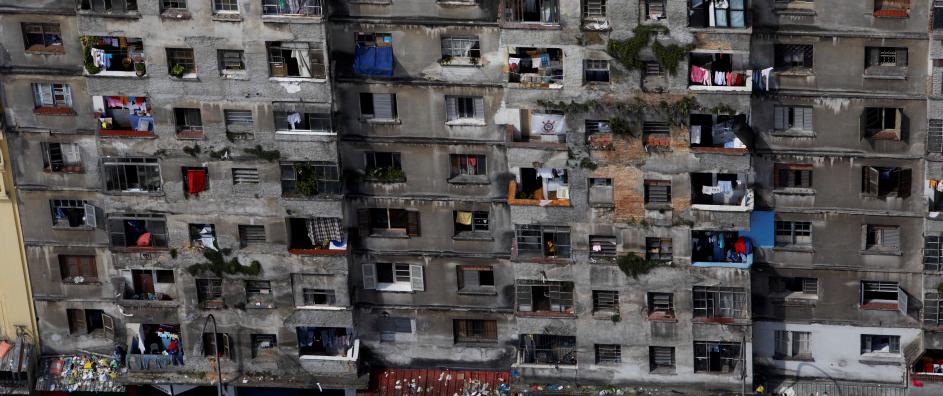In the contemporary world, the dichotomy between affluence and destitution is stark and disquieting. The question looms: Can we truly alleviate poverty in a society so entrenched in materialism? The Bahá’í teachings offer compelling insights into this pressing issue, advocating for a paradigm shift that champions the equitable distribution of resources. At the core of these teachings lies the principle of sharing wealth, fundamentally interwoven with the Bahá’í vision for a unified and just global society.
To comprehend the Bahá’í perspective on poverty eradication, one must first recognize the integral relationship between wealth and the well-being of humanity. Bahá’ís assert that wealth is not an end in itself, but rather a means to foster collective advancement. Wealth, in this context, is perceived as a tool for achieving greater social good. This philosophical outlook posits that the accumulation of material possessions should not supersede the moral imperative to uplift our fellow citizens. Thus, the Bahá’í teachings encourage individuals to wrest themselves away from materialistic pursuits, redirecting their focus towards altruism and communal responsibility.
Moreover, the Bahá’í Faith advocates for the elimination of extremes of wealth and poverty. This objective arises from the understanding that economic disparity engenders social strife, undermining societal cohesion. For instance, when individuals languish in destitution, the very fabric of society is frayed. By promoting equitable resource sharing, Bahá’ís envision a society where economic disparity is mitigated, fostering an environment conducive to peace and collaborative human development.
However, achieving such an ambitious goal poses substantial challenges. The entrenched systems of capitalism often perpetuate inequality, creating formidable barriers to realizing the Bahá’í vision of equitable wealth distribution. This predicament raises a provocative question: Is it feasible to harmonize the tenets of capitalism with the ideals of wealth sharing espoused by the Bahá’í Faith? While capitalism thrives on individualism and competition, the Bahá’í teachings encourage a more collectivist approach that prioritizes communal welfare over individual gain.
One solution offered by Bahá’í thought is the concept of profit-sharing. This system recognizes the value of both individual effort and collective success, incentivizing businesses to operate not merely for profit but for the betterment of society. In practice, this could manifest as companies redistributing a portion of their profits to support community initiatives, thus creating a tangible impact on poverty alleviation. This approach engages individuals in the prosperity of their communities, fostering a sense of shared responsibility.
The role of education in this framework is equally significant. Bahá’í teachings underscore the necessity of empowering individuals through education as a means to transcend poverty. Education is viewed not solely as an academic endeavor but as a holistic process that cultivates moral and spiritual virtues. By equipping individuals, particularly those from underprivileged backgrounds, with the knowledge and skills necessary for economic independence, society can remedy the cycle of poverty. The Bahá’í community actively promotes initiatives that provide educational opportunities, highlighting the importance of nurturing the potential of every individual.
Furthermore, the Bahá’í teachings advocate for the establishment of a social order that values justice above all else. True justice encompasses economic fairness, ensuring that every person has access to the resources needed to thrive. This entails a re-examination of societal structures that perpetuate inequality and a collective commitment to reform them. The Bahá’í approach calls for the redesign of economic systems in such a way that wealth serves humanity at large, rather than a privileged few. It challenges individuals and institutions alike to engage in a deep reflection about the ethical implications of their economic choices.
Within the Bahá’í framework, spirituality plays an indispensable role in addressing poverty. The call to service is paramount; individuals are encouraged to develop a profound connection to their communities, to engage in acts of kindness and generosity that transcend mere charity. This perspective shifts the narrative from viewing poverty alleviation as a transactional act to recognizing it as a divine responsibility. The intrinsic value of each individual, as emphasized in Bahá’í teachings, necessitates that we treat others with dignity, fostering a culture of support and empowerment.
However, it is essential to acknowledge the limitations of individual efforts in the face of systemic issues. While personal acts of kindness are noble, they must be complemented by systemic changes that challenge the status quo. The Bahá’í teachings compel adherents to not only participate in charitable endeavors but to advocate for policies that dismantle oppressive structures. With this dual approach—individual improvement coupled with social reform—the Bahá’í community seeks to cultivate a more equitable society.
In conclusion, the eradication of poverty, through the lens of Bahá’í teachings, transcends a mere economic challenge; it is a moral imperative. By fostering an ethos of wealth sharing, embracing the ideals of justice, and committing to the education and empowerment of all individuals, the Bahá’í Faith provides a framework for holistic poverty alleviation. Yet, the path is fraught with obstacles that require collective resolve and innovative solutions. As society grapples with its moral responsibilities in an increasingly unequal world, the Bahá’í teachings serve as a beacon of hope and a guide toward a future where all individuals can share in the abundance of their collective humanity.
